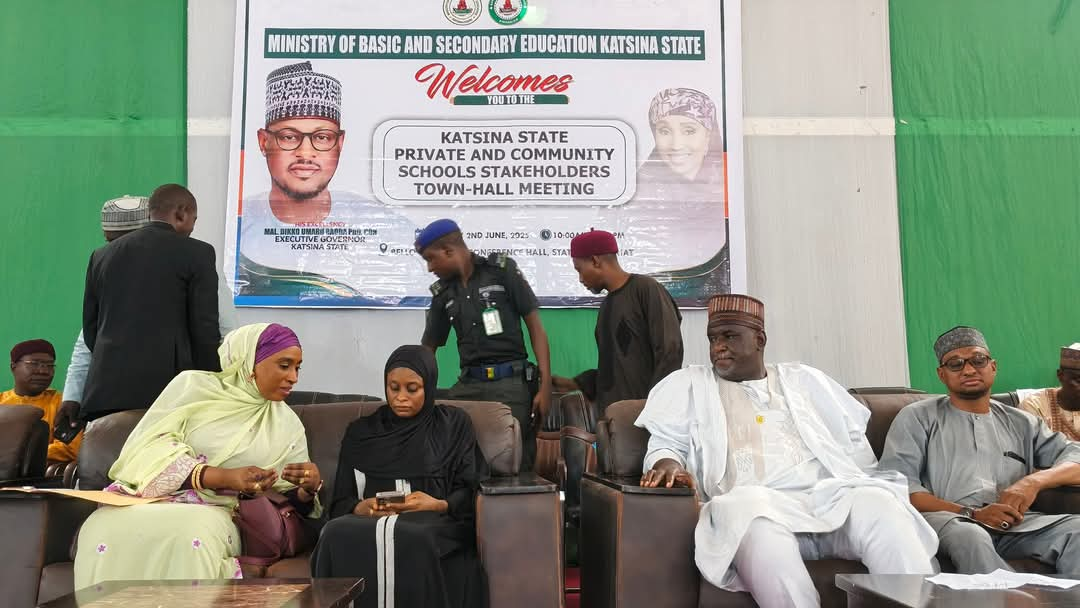Katsina Govt Begins Overhaul of Private, Community Schools with New Regulatory Framework

Katsina Govt Begins Overhaul of Private, Community Schools with New Regulatory Framework
By Zaharaddeen Ishaq Abubakar | Katsina Times | June 2, 2025
The Katsina State Government has commenced consultations with key education stakeholders to develop new policies and regulations aimed at strengthening the management of private and community schools across the state.
The inaugural meeting on the initiative took place on Monday, June 2, at the Bello Kofar Bai Conference Hall within the State Secretariat. It was led by the Ministry of Basic and Secondary Education and attended by school proprietors, teachers, community leaders, and education advocates.
In her remarks, Commissioner for Basic and Secondary Education, Hajiya Zainab Musa Musawa, emphasized that collaboration with stakeholders is crucial to advancing education in the state.
"Each of you plays a vital role in shaping the future of our children. This meeting is a testament to our collective commitment to sustaining quality education in Katsina State," she said.
The commissioner stated that the new regulatory framework aims to ensure transparency, quality, and inclusive participation in the education sector—particularly targeting improvements in private and community-based schools. The policies are drawn from the national curriculum for non-governmental schools and tailored to Katsina’s unique needs.
The framework is divided into three key sections:
-
General Guidelines – Covering early childhood to secondary levels, including vocational and boarding schools, and focusing on curriculum implementation, leadership, environment, child protection, and inclusion of learners with special needs.
-
Regulations for Private Schools – Outlining clear criteria for establishing and managing private institutions.
-
Regulations for Community Schools – Emphasizing community collaboration and sustainable school development.
Hajiya Musawa clarified that the regulations are not intended to suppress schools but to improve educational standards and protect students from substandard learning. She added that licenses will no longer be granted to institutions that fail to meet the set criteria.
“This framework is not about restriction—it’s about protecting students and their parents from poor-quality education. All requirements must be met before the new academic year,” she said.
She further noted that the government will enforce compliance and ensure that all education providers operate under state-approved standards without interference or favoritism.
While the guidelines are still in their draft stage, the commissioner invited further input and recommendations from stakeholders to enhance the policy. “The government is open to any suggestions that will strengthen this initiative,” she stressed.
She also revealed that the state is exploring the use of modern technologies, including artificial intelligence (AI) and e-learning platforms, particularly in rural areas, to support learning and expand educational access.
Professor Kabir Matazu, a participant at the meeting, remarked that many private and community schools currently operate without proper structures, hindering adherence to effective standards.
“This is an opportunity to align efforts and foster collaboration between the government and education providers,” he said.
It was disclosed that a special committee, led by the Secretary to the State Government and comprising both former and current education commissioners, has been tasked with reviewing and refining the policy to align with the state's education goals.
The Ministry of Basic and Secondary Education concluded by pledging training and support for school operators and called for compliance and cooperation to create a modern, conducive learning environment.

